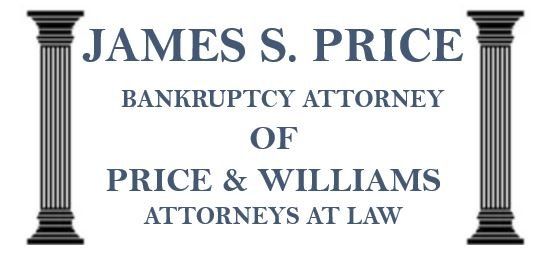Free Consultations Serving the Entire Wilmington Area
WHAT IS AND ISN’T COVERED BY CHAPTER 7 BANKRUPTCY
If a debt is discharged, it means that you are no longer legally responsible for the debt and the creditor can’t try to collect the money. In other words, the debt is dead.
Chapter 7 bankruptcy can discharge many types of debt, including the following.
Unsecured Debts
If you have a secured debt, that means that when you borrowed the money you agreed that the creditor could take possession of your property if you didn’t pay. On the other hand, an unsecured debt does not have this stipulation.
Chapter 7 bankruptcy’s main function is to eliminate unsecured debts. If you have unsecured debts, like utility bills, medical bills, personal loans, unpaid rent and credit card charges, your Chapter 7 bankruptcy will most likely discharge these debts, giving you a fresh start so you can get back on your feet.
However, there are exceptions. If a person incurs credit card debt from luxury purchases, especially if those purchases were made very close to filing for bankruptcy, the creditor may successfully persuade the court that the debt shouldn’t be dischargeable. Speak with your attorney so you can know what to expect to happen to your debt.
Lawsuit Judgments
If you lost a civil lawsuit and now owe the other party, this debt can probably be discharged. However, there are exceptions, such as if you caused a personal injury while driving drunk or if you committed fraud.
Debts That Can’t Be Discharged
Unsecured debts often are the most pressing concerns when people need to file for chapter 7 bankruptcy, and the bankruptcy should discharge them. However, there are many other types of debt. The following will not be discharged if you file for chapter 7 bankruptcy.
Secured Debts
If you have a secured debt, like a mortgage or a car payment, the bankruptcy will not wipe it out. Your property may be repossessed if you cannot find a way to pay for it. However, if you surrender your property, then the debt will be considered discharged.
Keep in mind that there are exceptions. Talk with a lawyer to see if there is any way you can save property you bought with a secured debt.
Debts Not Included in Your Filing
If you forgot to include some of your debts when you filed for bankruptcy or if you incurred debts too close to your filing, then those debts may stick with you. Make sure to speak with a lawyer before you file so that you have the best chance of getting as much debt as possible discharged.
Family Obligations
If you owe child support or alimony, the courts will not discharge the debt. You’ll still owe your ex-spouse or children every penny.
Student Loans
Occasionally but rarely, those who file for bankruptcy can get student loans discharged if they prove that paying them back would be an “undue hardship.” However, the vast majority of student loans survive the bankruptcy process. If you have student loan debt, plan on paying it in full.
Taxes
If you owe taxes to the government, they probably won’t be discharged. In the case, a Chapter 13 may be the way to go. Ask your attorney which chapter of bankruptcy best fits your needs.
ADDRESS
James S. Price Bankruptcy Attorney
of Price & Williams Attorneys At Law
5725 Oleander Drive, Suite C3
Wilmington, NC 28403
Phone: 910-791-9422
BUSINESS HOURS
- Mon - Fri
- -
- Sat - Sun
- Closed
CONTACT US
Contact Us
We will get back to you as soon as possible.
Please try again later.
ADDRESS
James S. Price Bankruptcy Attorney
of Price & Williams Attorneys At Law
5725 Oleander Drive, Suite C3
Wilmington, NC 28403
Phone: 910-791-9422
BUSINESS HOURS
- Mon - Fri
- -
- Sat - Sun
- Closed
CONTACT US
Contact Us
We will get back to you as soon as possible.
Please try again later.
We partner with a third party ad network to either display advertising on our Web site or to manage our advertising on other sites. Our ad network partner uses cookies and Web beacons to collect non-personally identifiable information about your activities on this and other Web sites to provide you targeted advertising based upon your interests. If you wish to not have this information used for the purpose of serving you targeted ads, you may opt-out by clicking here (Link to TRUSTe global opt-out:http://preferences.truste.com/). Please note this does not opt you out of being served advertising. You will continue to receive generic ads.



